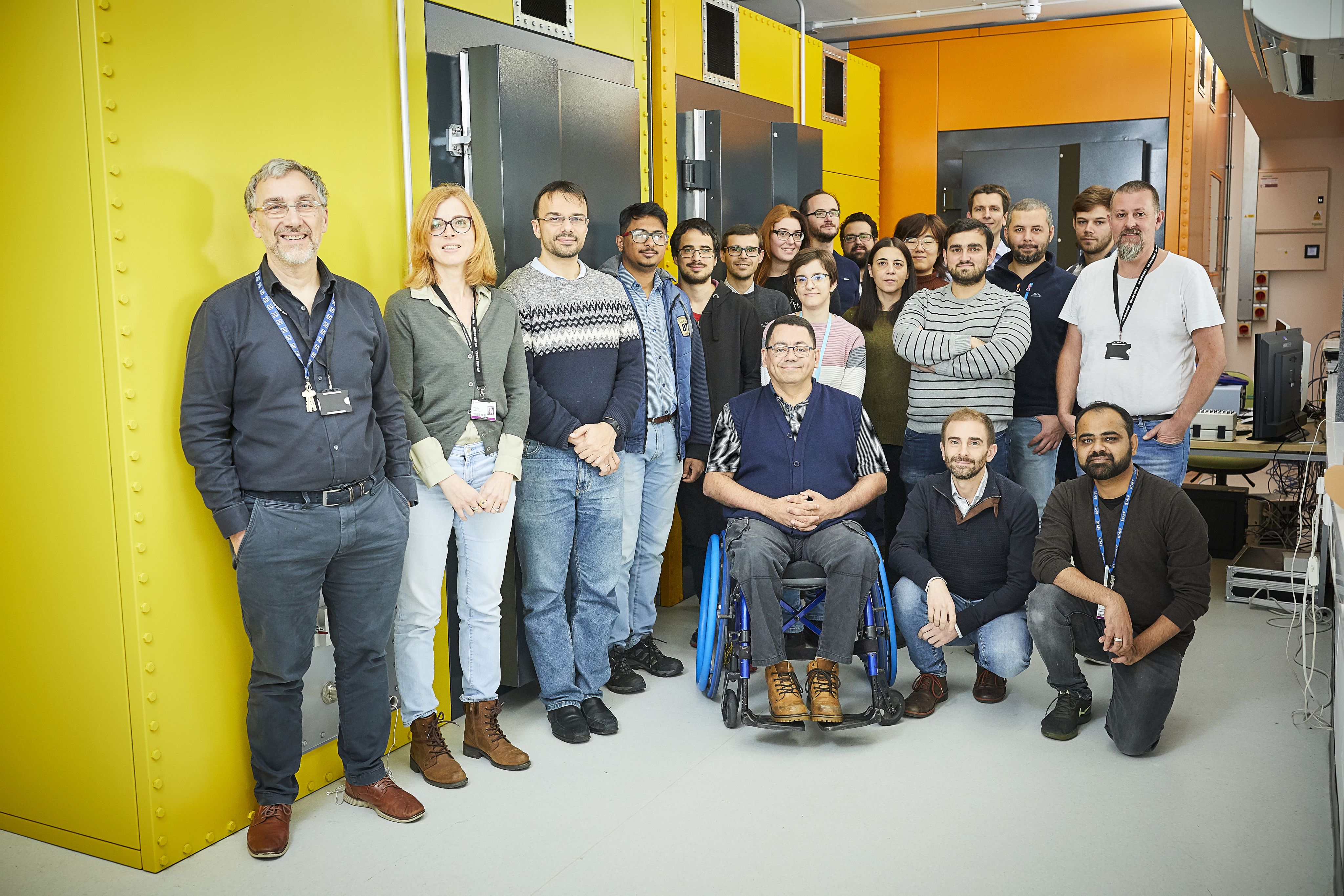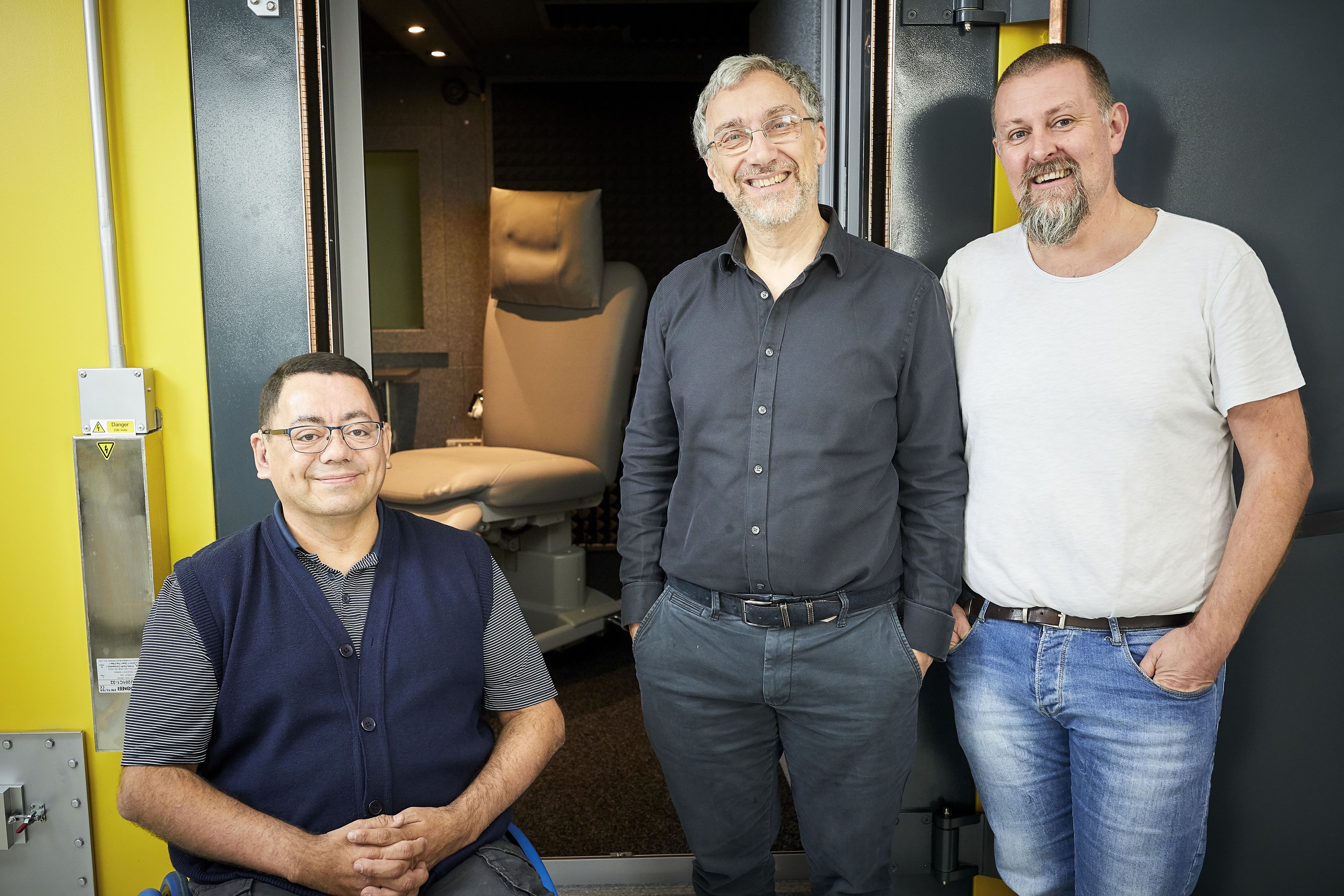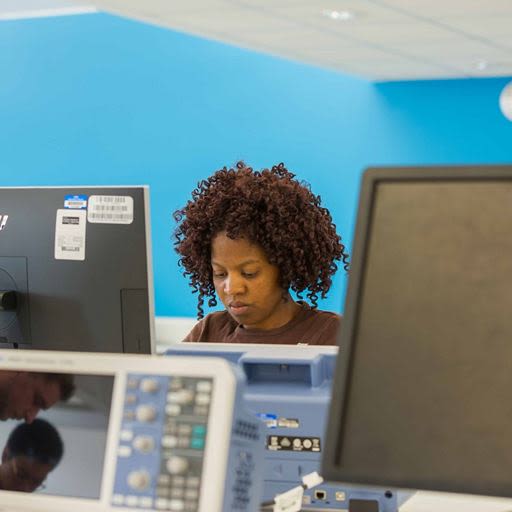Unleashing the power of the brain
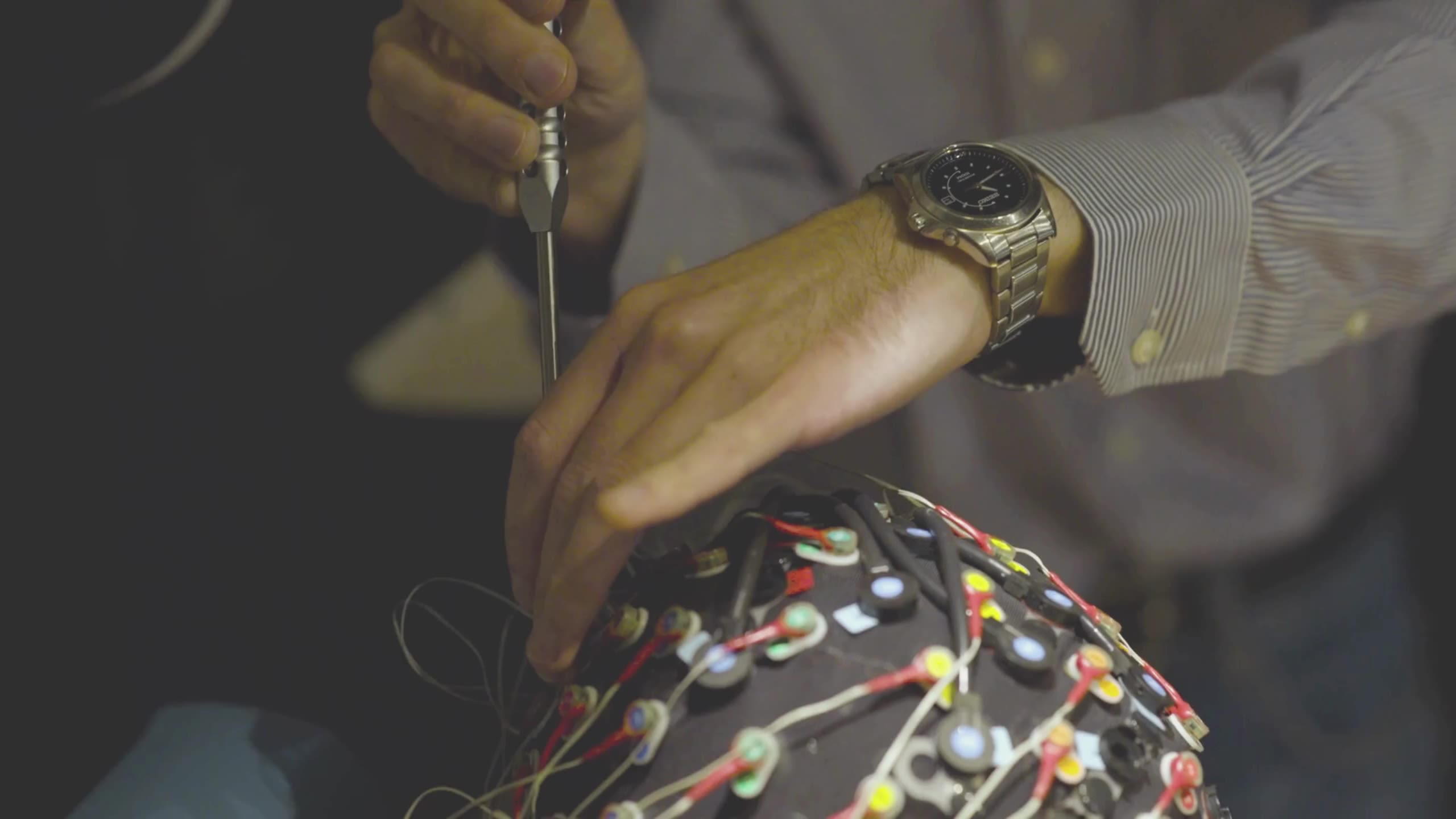
The brain is the single most complex and powerful organ in the human body, yet we are nowhere near to unleashing its true potential.
The brain can re-wire connections in the body, power computers, and even form the basis for machine learning and artificial intelligence.
Academics at Essex are at the vanguard of Brain-Computer interface and neural engineering research, coming up with innovative ways to tap into the mind and unlock its incredible abilities.

Brain-Computer Interface and Neural Engineering
Brain-Computer Interface (BCI) and Neural Engineering research taps into the signals sent from the brain and sends them to a computer or device to decode them.
It offers scientists the chance to not only learn more about the way our brains work, but understand its language and come up with new solutions to aid people with communication problems, loss of movement and other disabilities.
Research is also being expanded to aid machine learning and help with better decision-making.
Essex launched its Brain-Computer Interface and Neural Engineering Lab in 2004.
It is now one of the largest in the world; best known for its non-invasive interfaces and cognitive augmentation.
The Lab consists of state-of-the-art equipment, including three large Faraday cages, a robotic brain stimulation system, multiple electroencephalograms (EEG), respiration sensors and eye trackers, a mobile VR kit, motorised wheelchairs and robotic arms, and computing servers with backup storage.
For nearly two decades now, the lab has produced internationally leading research; collaborating with some of the biggest organisations and governments around the world, such as MIT, NASA, the NHS, and US Department of Defence.
Understanding the language of the brain
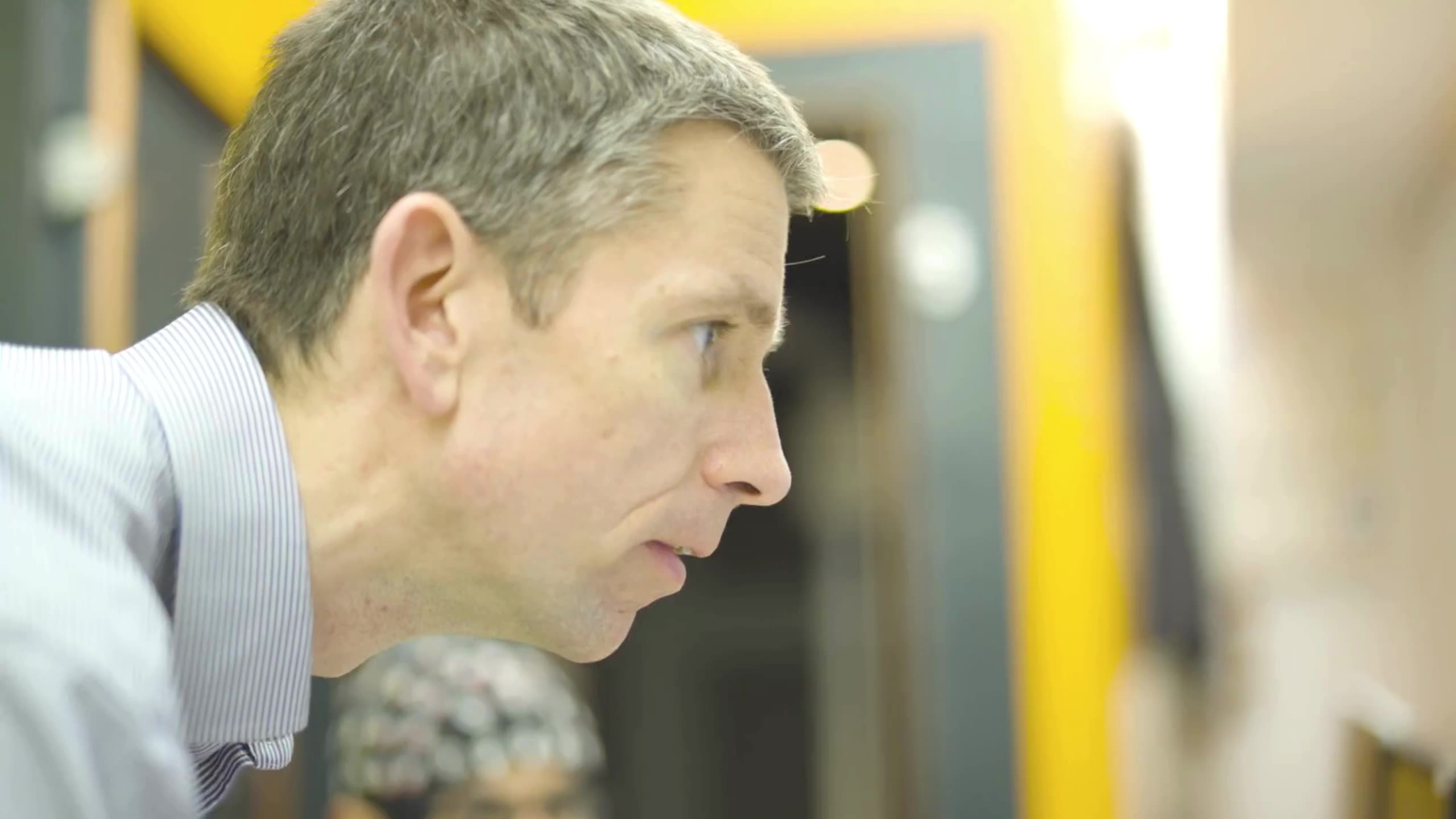
One of the main missions of BCI research is exploring new types of communication and support using signals measured from the brain.
Dr Ian Daly is among several researchers at Essex attempting to decode these signals and understand the language of the brain.
It is thought that BCI research holds the key to future communication aids for people who suffer from a range of health complications.
Dr Daly said: “BCI and other biomedical engineering and neural engineering solutions have tremendous potential to provide healthcare support, help, and assistance to many people.
“This can include people living with very severe communication and movement challenges, such as people who have suffered a stroke, as well as healthy people who could benefit from BCI based assistance in their day-to-day lives, education, or jobs.”
Dr Daly is helping to develop new BCI systems, which are being tested on participants in the lab at Essex.
Previous studies have demonstrated systems can decode concepts people are focused on, such as an animal or tool.
Additional research has used deep-learning neural network modelling to reconstruct and identify pieces of music people arte listening to from their brain signals.
Other areas being explored by Dr Daly include neural stimulation to explore cortico-spinal pathways and cortical excitability, for example during learning and neuro-rehabilitation.
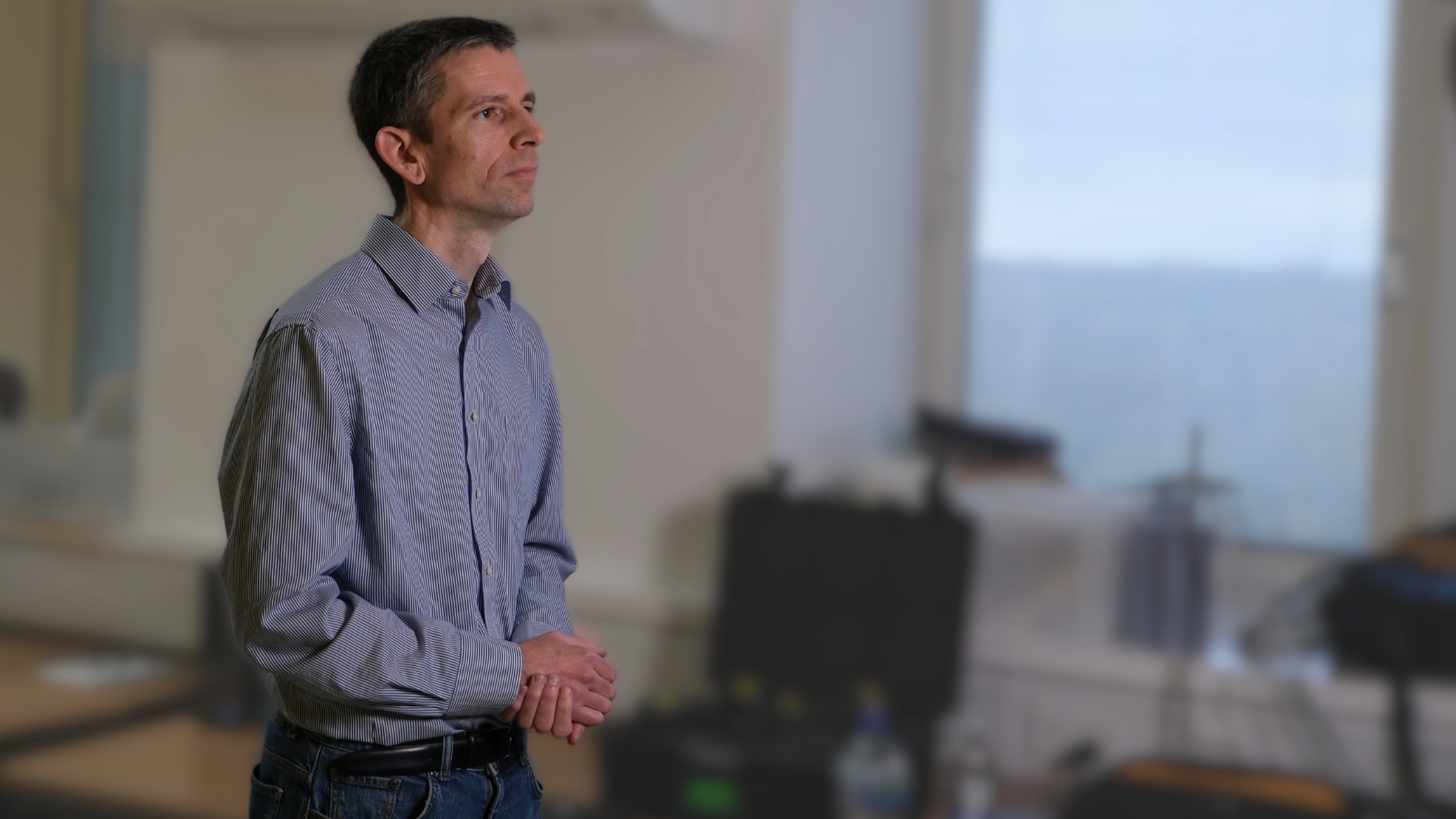
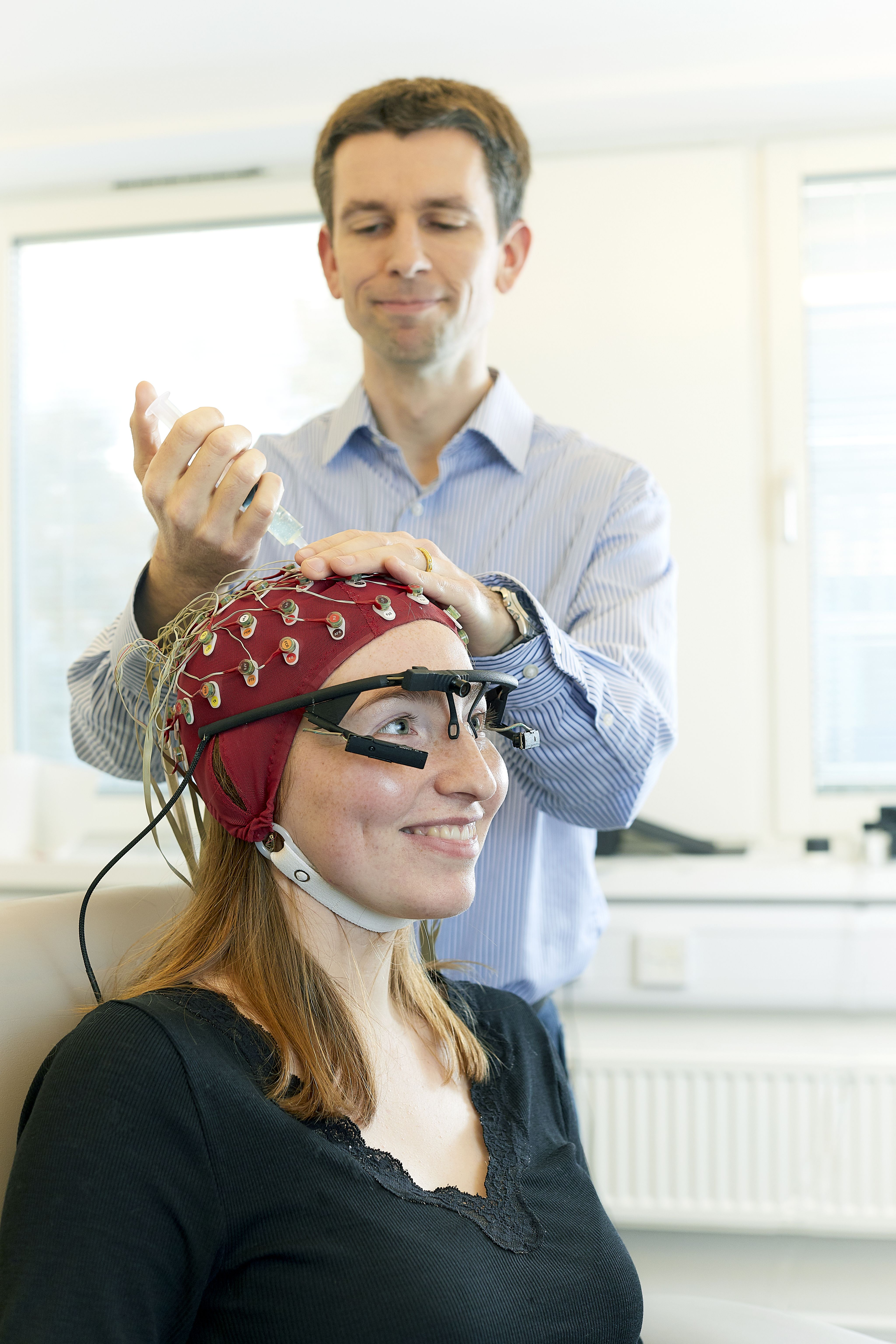
Improving decision-making
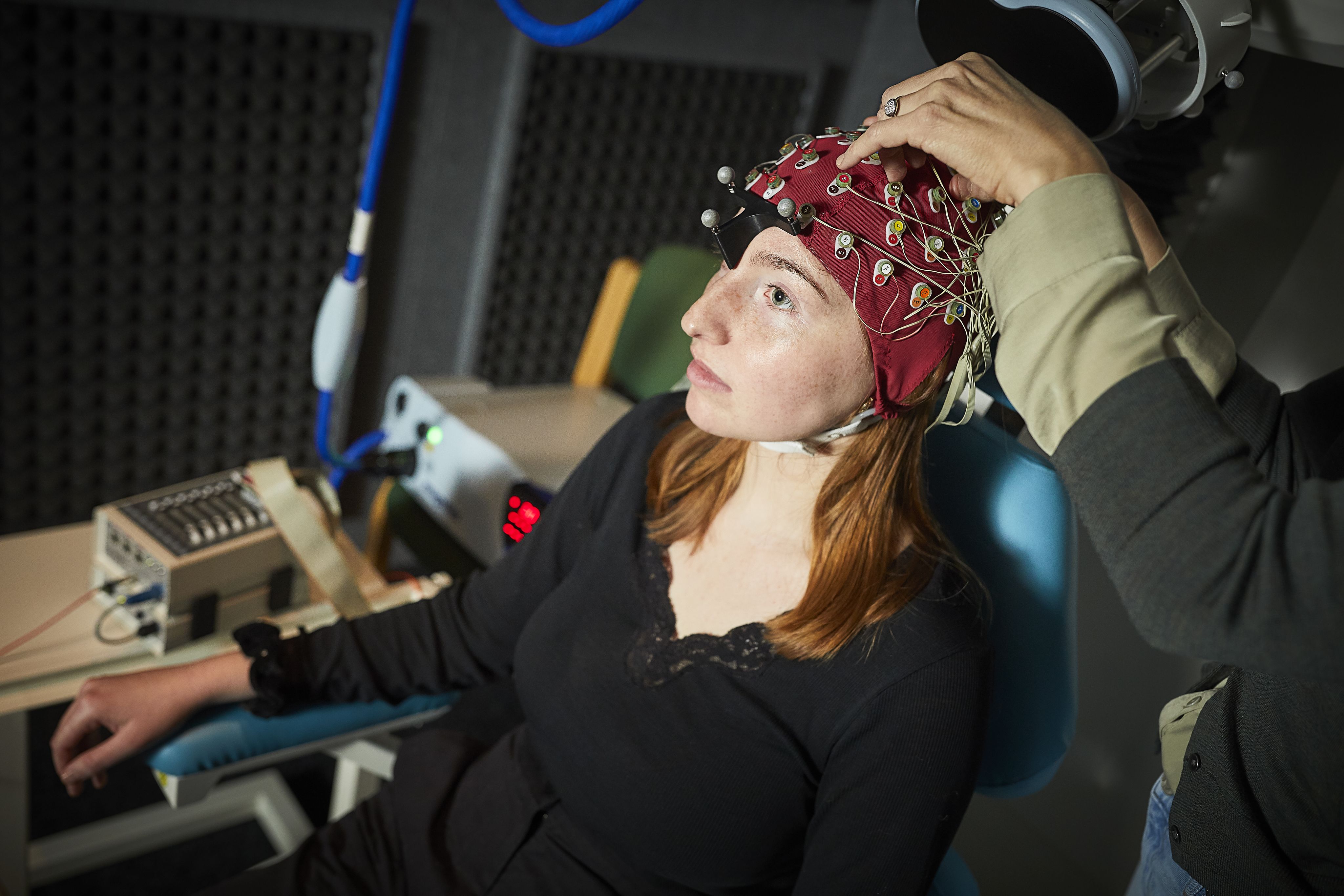
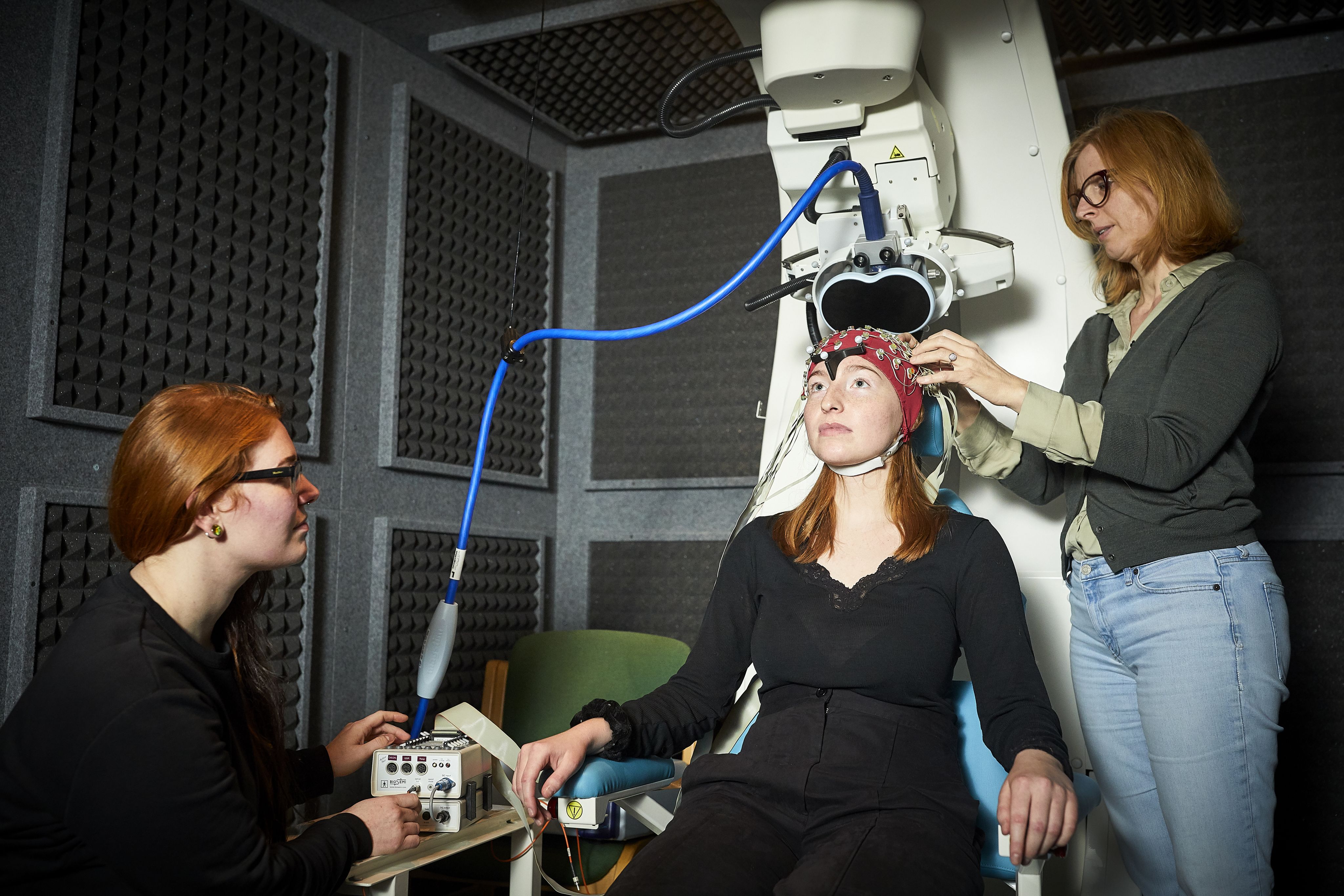
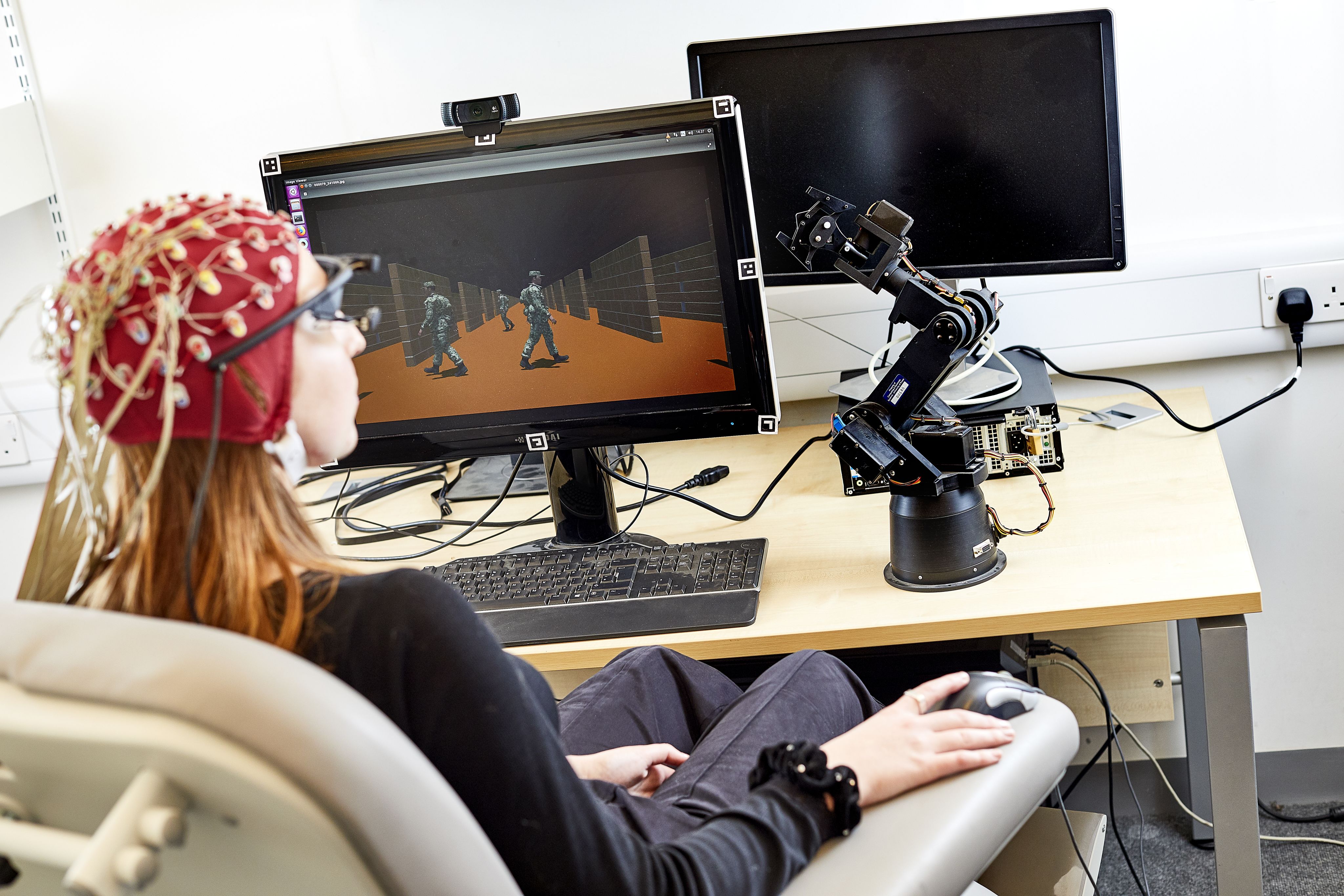
Enhancing cognitive abilities among decision-makers is another key aim of the Essex BCI research group.
Backed by the Ministry of Defence, Dr Caterina Cinel, in collaboration with Professor Riccardo Poli, is working on a project which aims to not only speed up decision-making, but also improve the accuracy of group decisions.
Rather than relying on communication between individuals involved in the decision-making process, BCI can be used to tap into each person’s subconscious and decode, in addition to neural signals, other signals such as heart-rate and eye movement.
The BCI is able to determine the confidence of each person based on these factors and can assess the probability of an individual decision to be correct or incorrect based on that confidence estimate.
Group decisions assisted by BCI can improve decisions based on simple majority by up to 20-30%, with evidence suggesting confidence assessed through the BCI is more accurate in some circumstances.
Dr Cinel said: “This research allows us to understand to which extent people’s decision and choices can be assessed through indirect measures, such as neural, physiological and behavioural.
“We aim at developing systems that help people and organisations to make more accurate and faster choices when needed, particularly when decisions need to be made rapidly and under pressure.
“More traditional forms of communication can slow down the decision process, create misunderstandings, and can be biased by a group's dynamics.”
Recent studies involve participants taking part in a pandemic game while connected to the BCI.
The game requires them to allocate resources to certain geographical areas in a bid to support communities, as well as prevent the pandemic from spreading further.
The decisions made in the game are matched to the BCI’s assessment of the player’s confidence and the probability of the final decision being correct is based on advanced machine learning algorithms.
“The BCI is not meant to make final decisions, but to support and help humans to make more accurate decisions.”
Dr Caterina Cinel


A new form of treatment
Around seven in ten women suffer with perimenopausal symptoms.
Current treatments for these symptoms, such as hormone therapy, may not be suitable or desired by women due to the potential risks, side effects or their personal preferences.
Essex’s Dr Ana Matran-Fernandez is playing a key role in ground-breaking research into alleviating perimenopausal symptoms through the use of non-invasive techniques, such as BCI.
The pilot study, which begins in January 2025 and is being funded by the Royal Society International Exchange programme, will see Dr Matran-Fernandez work with the University of Valladolid to essentially retrain the brain.
Participants in the research will wear a cap that measures their EEG signals which are then mapped into the height of a spaceship.
They will then be asked to lift the spaceship in a bid to re-wire certain brain activity.
Researchers hope to discover a link between the brain activity they’re aiming to modify and the perimenopausal symptoms they experience.
Dr Matran-Fernandez said: “Our project holds significance in exploring a novel, non-pharmacological approach to addressing perimenopausal symptoms, potentially providing women with more choices for symptom management.
“We aim to contribute to the body of research on non-pharmacological interventions for women’s health during midlife, an area that is under-researched.”
It is hoped insights gained from the study will also contribute to our understanding of neuroplasticity and brain regulation mechanisms during the perimenopausal transition.
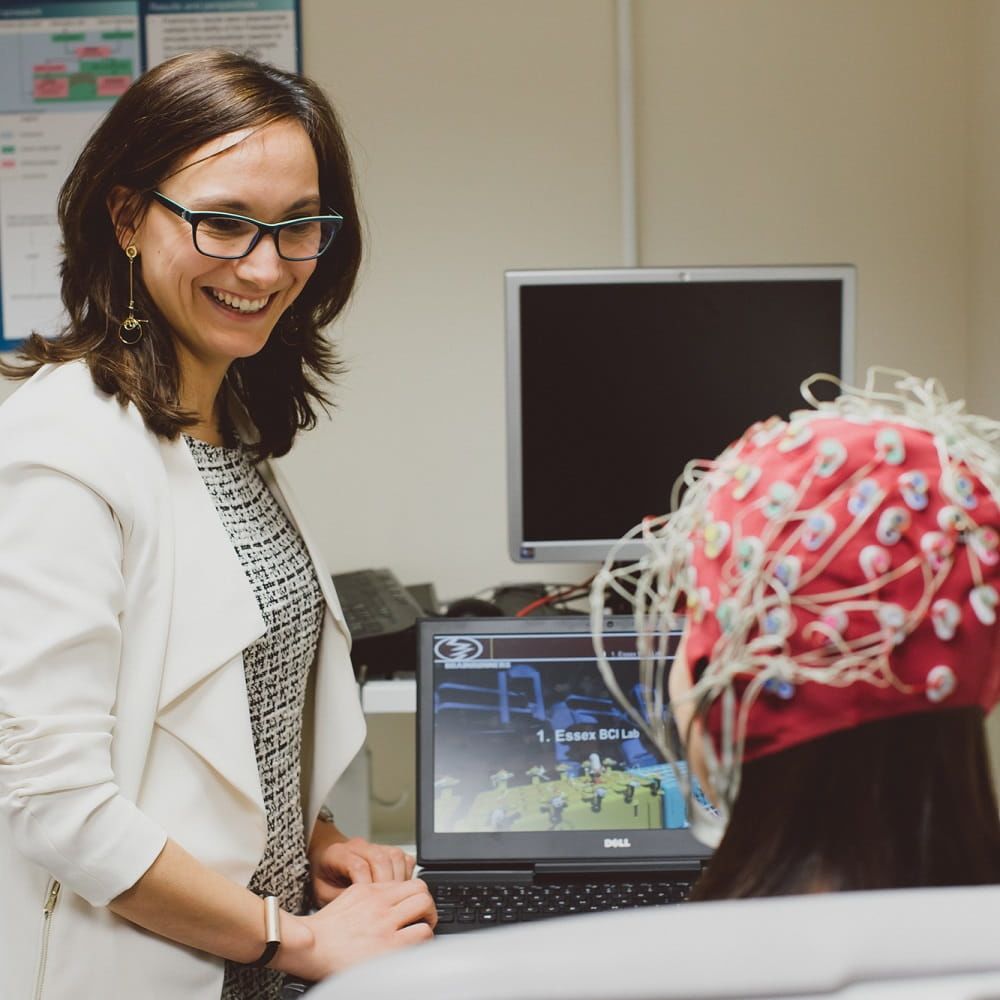
Turning thoughts into action
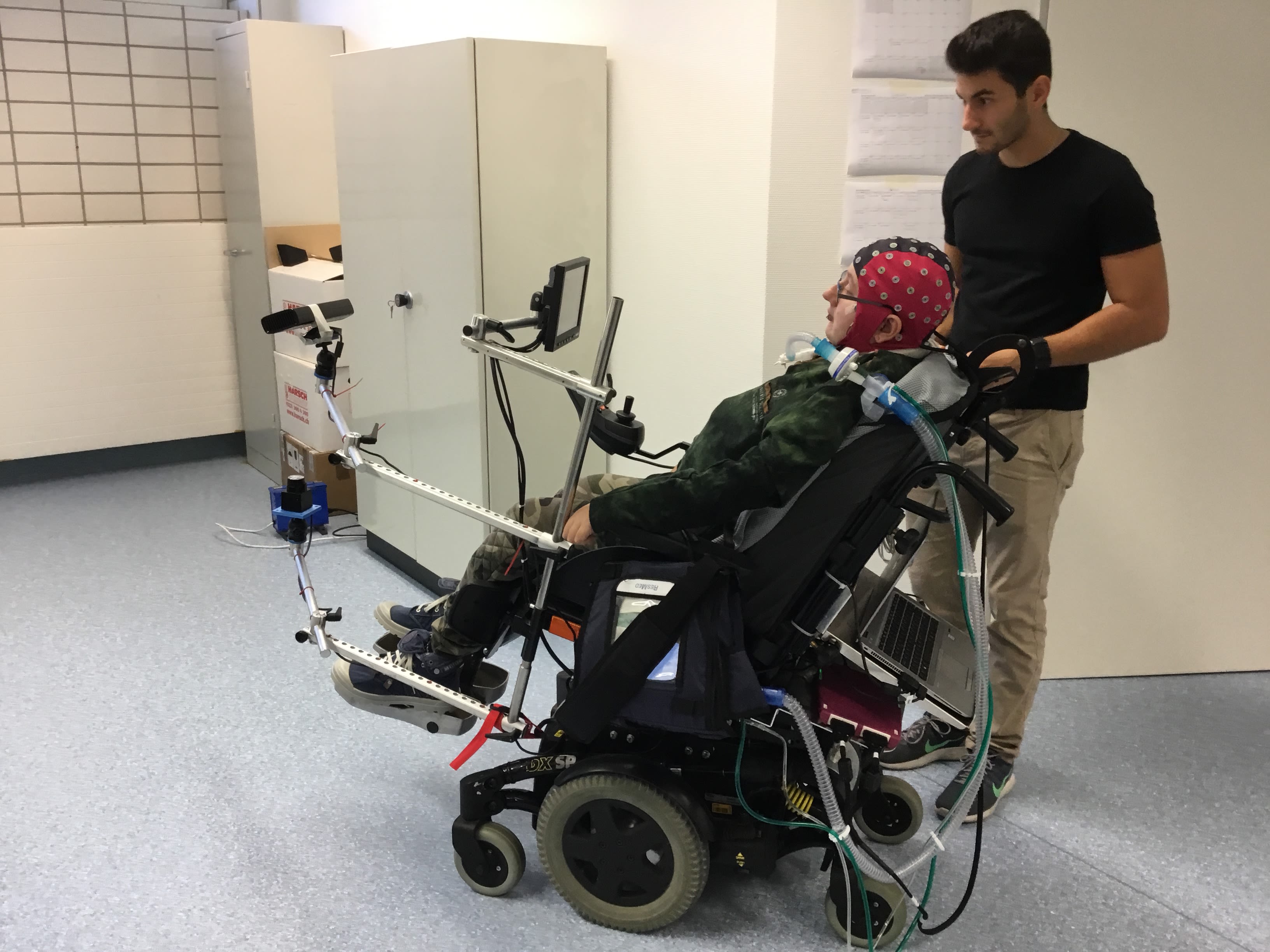
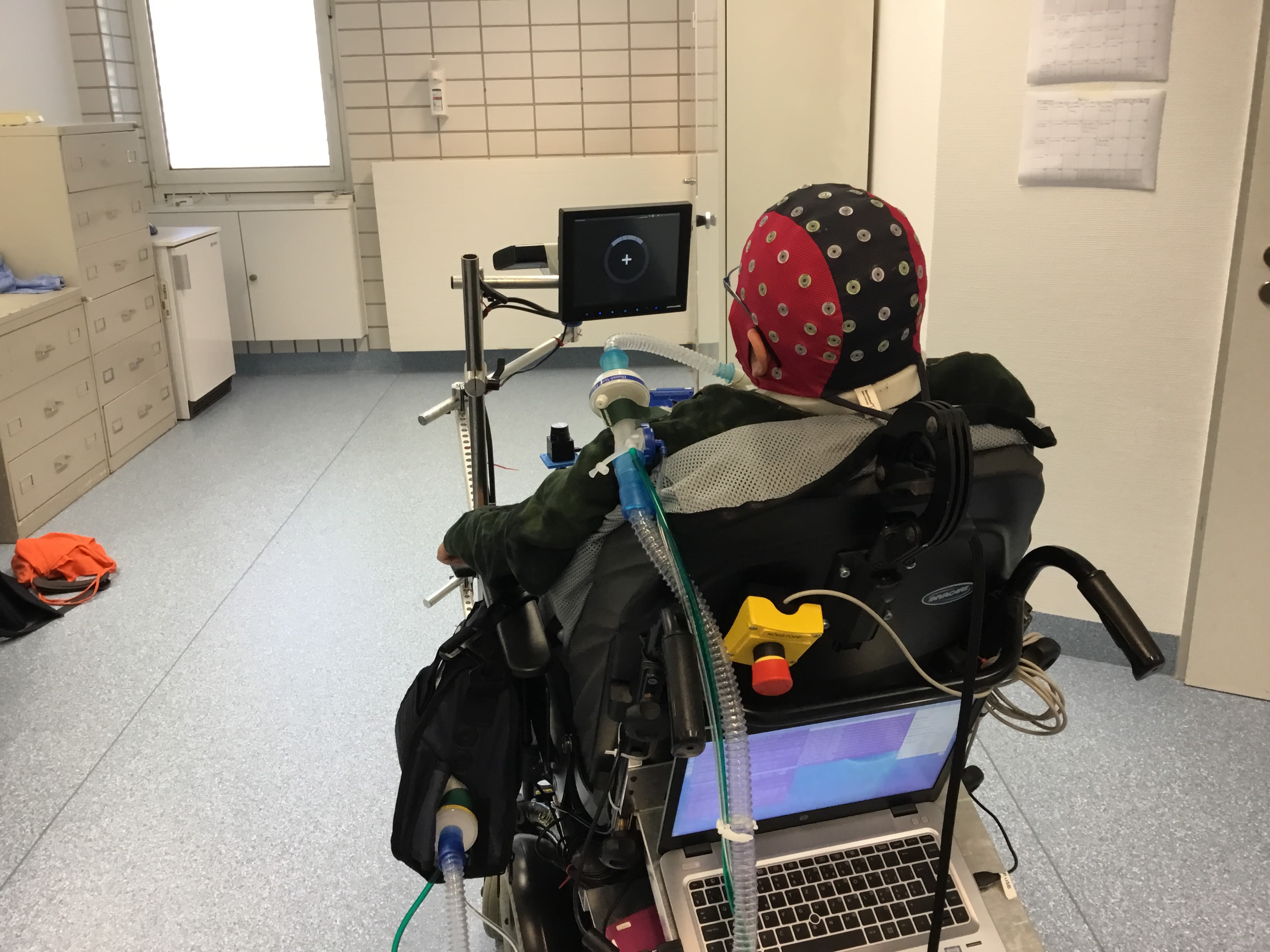


Our experts have teamed up with academics around the globe to come up with innovative ideas to transfer BCI research into the real world.
Working with the University of Texas and other researchers around Europe, Essex’s Dr Serafeim Perdikis has helped design a wheelchair which can be controlled entirely by its host's brain.
The first of its kind study involved three people with tetraplegia; the inability to move their arms and legs due to spinal injuries.
They operated the wheelchair in a cluttered, natural environment to varying degrees of success.
The interface recorded their brain activity, and a machine-learning algorithm translated it into commands that drove the wheelchair.
Dr Perdikis said: "This study shows that effective user training, on the one hand, and the combination of brain-computer interface (BCI) with smart, autonomous technologies, on the other hand, are the keys to unlocking the translational potential of BCI applications."
The study was also significant because of the non-invasive equipment used to operate the wheelchair.
Participants wore a cap covered with electrodes that recorded brain electrical activity, known as an EEG.
An amplifying device sent those electrical signals to a computer that interpreted each participant’s intentions and translated them into movement.
The researchers believe the study demonstrates the future commercial viability for mind-powered wheelchairs that can assist people with limited motor function.
Find out more
Brain-Computer Interfaces and Neural Engineering
The BCI-NE lab is one of the four pillars of the University of Essex's School of Computer Science, which is in itself one of the largest in the UK.
Our research degrees in CSEE
Our degrees are about more than research. You will gain experience in project management and communication, as well as support to develop your numerical and data analysis skills.
Sixty Stories
We’re celebrating 60 years of making change happen. 60 years of boldness and bravery from our students past and present. 60 years of creating change.

